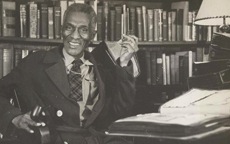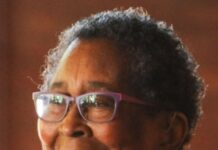 L.S. Alexander Gumby was born in 1885 in Maryland. He moved to Harlem in 1904. Over the course of his life he compiled 161 large scrapbooks documenting African American life in Harlem. The scrapbooks are full of newspaper clippings, photographs, documents, pamphlets, and other items. In 1950 Gumby delivered his scrapbooks to the Rare Book and Manuscript Library at Columbia University. Seventeen of the scrapbooks are devoted to boxing. There are 18 documents relating to slavery.
L.S. Alexander Gumby was born in 1885 in Maryland. He moved to Harlem in 1904. Over the course of his life he compiled 161 large scrapbooks documenting African American life in Harlem. The scrapbooks are full of newspaper clippings, photographs, documents, pamphlets, and other items. In 1950 Gumby delivered his scrapbooks to the Rare Book and Manuscript Library at Columbia University. Seventeen of the scrapbooks are devoted to boxing. There are 18 documents relating to slavery.
Columbia is now offering portions of Gumby’s scrapbooks online at a website entitled “Unwritten History: Alexander Gumby’s African America.”










